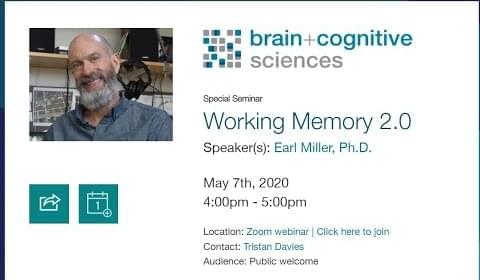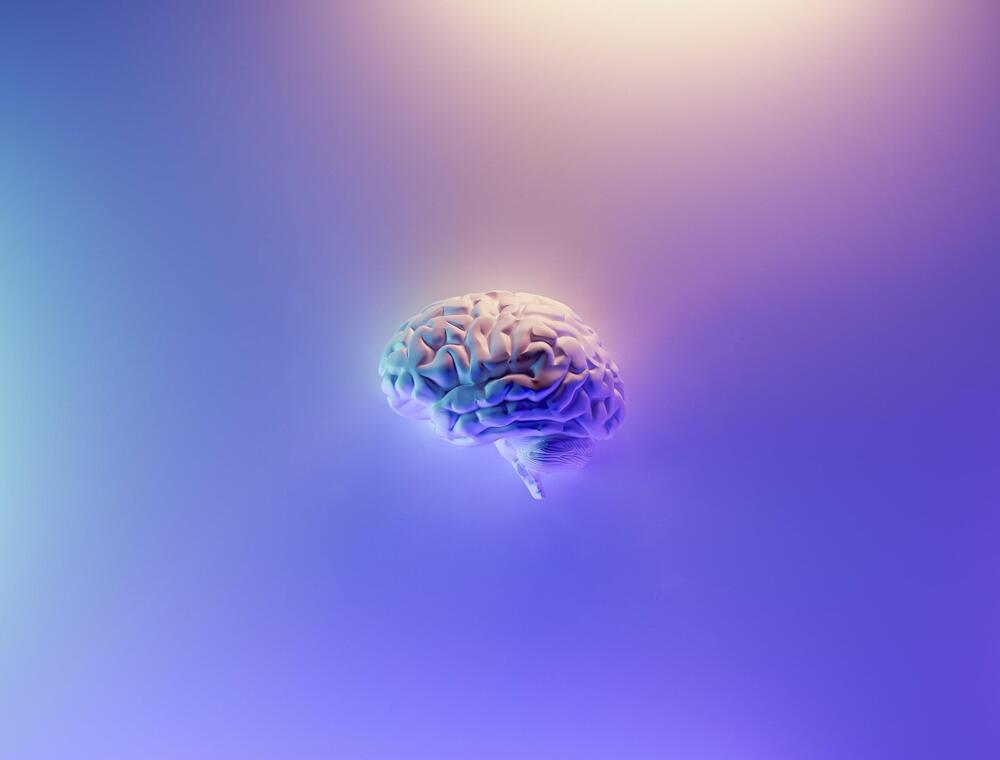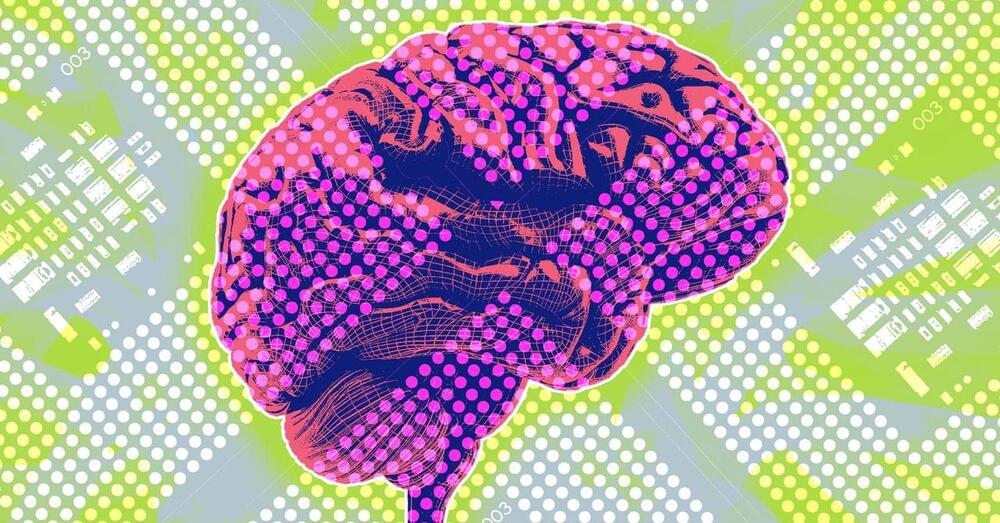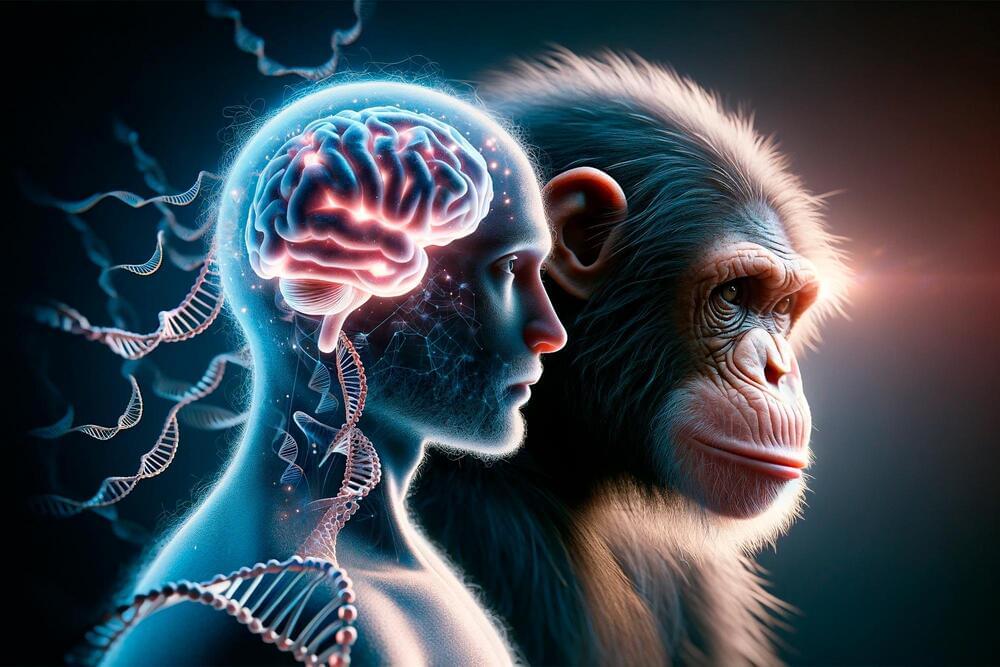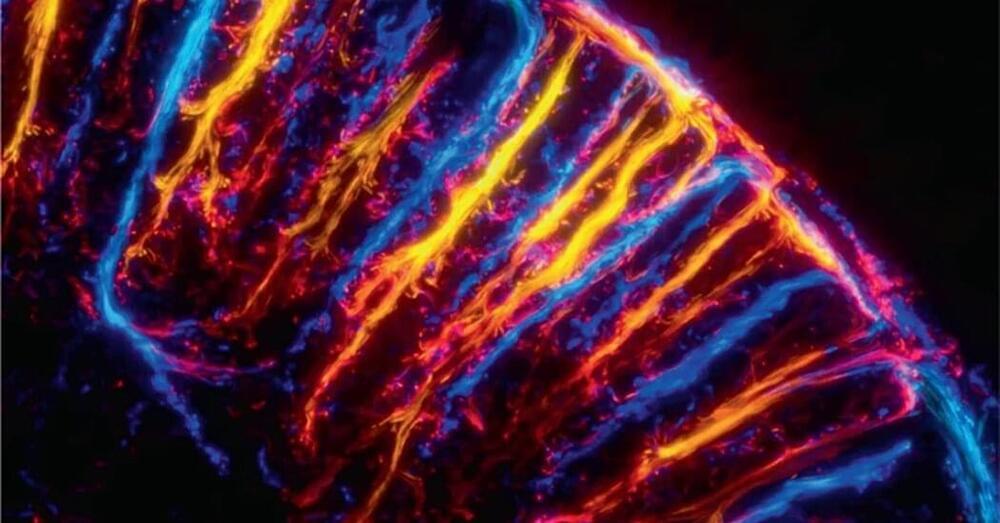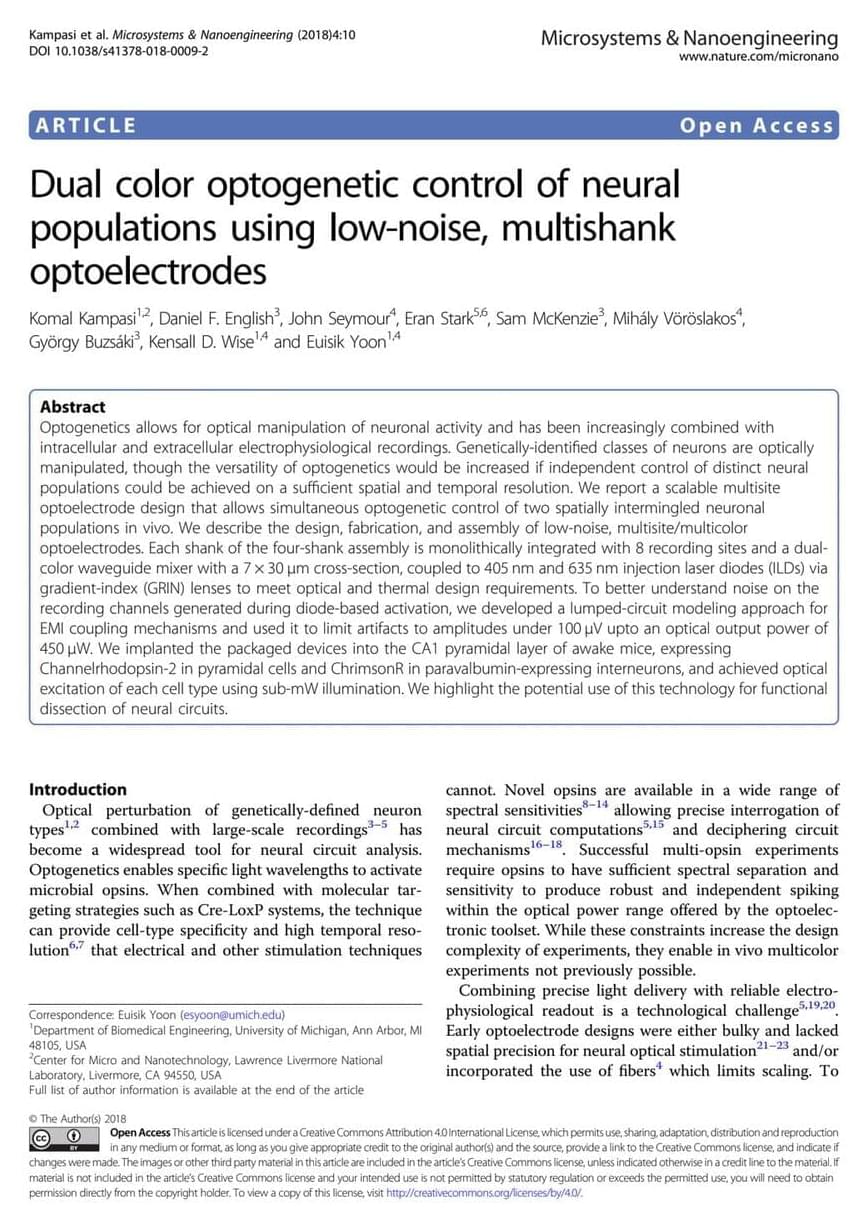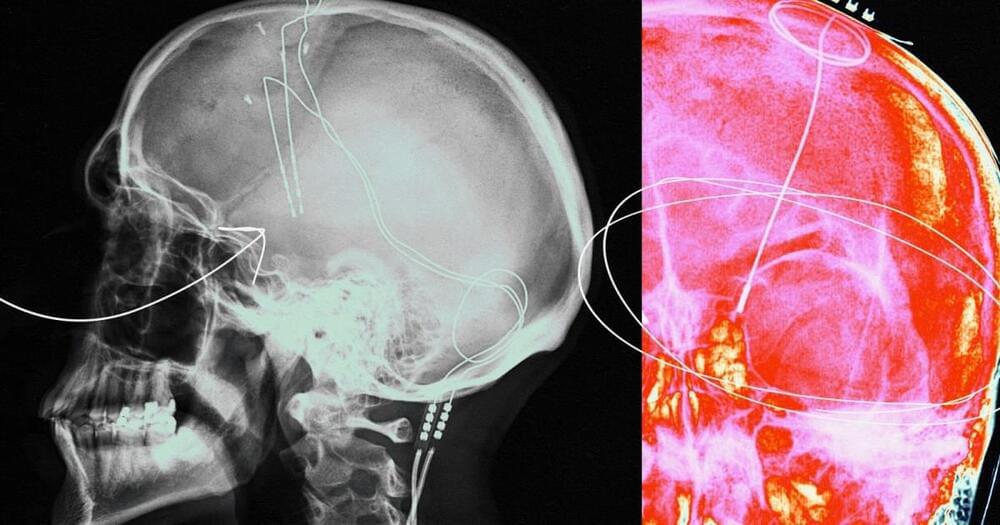Archive for the ‘neuroscience’ category: Page 193
Dec 24, 2023
Researchers develop effective method to genetically modify brain organoids
Posted by Dan Breeden in categories: biotech/medical, evolution, genetics, neuroscience
Primates are among the most intelligent creatures with distinct cognitive abilities. Their brains are relatively large in relation to their body stature and have a complex structure. However, how the brain has developed over the course of evolution and which genes are responsible for the high cognitive abilities is still largely unclear. The better our understanding of the role of genes in brain development, the more likely it will be that we will be able to develop treatments for serious brain diseases.
Researchers are approaching these questions by knocking out or activating individual genes and thus drawing conclusions about their role in brain development. To avoid animal experiments as far as possible, brain organoids are used as an alternative. These three-dimensional cell structures, which are only a few millimeters in size, reflect different stages of brain development and can be genetically modified. However, such modifications are usually very complex, lengthy and costly.
Researchers at the German Primate Center (DPZ)—Leibniz Institute for Primate Research in Göttingen have now succeeded in genetically manipulating brain organoids quickly and effectively. The procedure requires only a few days instead of the usual several months and can be used for organoids of different primate species. The brain organoids thus enable comparative studies of the function of genes at early stages of brain development in primates and help to better understand neurological diseases.
Dec 24, 2023
The Race to Put Brain Implants in People Is Heating Up
Posted by Kelvin Dafiaghor in categories: computing, Elon Musk, neuroscience
Thanks in part to Elon Musk, the field of brain-computer interfaces has captured both public and investor interest, with a cadre of companies now developing implantable devices.
Dec 24, 2023
Brain Evolution Unlocked: Over 100 Genes That Make Us Uniquely Human
Posted by Saúl Morales Rodriguéz in categories: biotech/medical, evolution, neuroscience
The researchers found 139 genes that are common across the primate groups but highly divergent in their expression in human brains.
An international team led by researchers at the University of Toronto has uncovered over 100 genes that are common to primate brains but have undergone evolutionary divergence only in humans – and which could be a source of our unique cognitive ability.
The researchers, led by Associate Professor Jesse Gillis from the Donnelly Centre for Cellular and Biomolecular Research and the Department of Physiology at U of T’s Temerty Faculty of Medicine, found the genes are expressed differently in the brains of humans compared to four of our relatives – chimpanzees, gorillas, macaques, and marmosets.
Dec 24, 2023
8 Stunning New Images From Neuroscience
Posted by Dan Breeden in categories: biotech/medical, neuroscience
This is not a work of art. It’s an image of microscopic blood flow in a rat’s brain, taken with one of many new tools that are yielding higher levels of detail in brain imaging.
Here are seven more glorious images from neuroscience research →
Alexandre Dizeux
Dec 24, 2023
Alcohol Abuse Linked to Permanent Brain Damage and Wernicke-Korsakoff Syndrome in US Crisis
Posted by Dan Breeden in categories: biotech/medical, neuroscience

Facing an alcohol crisis, the US sees 12% of adult deaths linked to abuse. Excessive drinking risks permanent brain damage, Wernicke-Korsakoff Syndrome. Symptoms mimic drunkenness and can lead to irreversible psychosis. Prevention? Cut back or quit. Concerned? Seek medical advice for potential Vitamin B1 treatment.
Dec 24, 2023
Matt Perich: Merging neural and behavioral modularity through brain-wide compositional modes
Posted by Dan Breeden in category: neuroscience
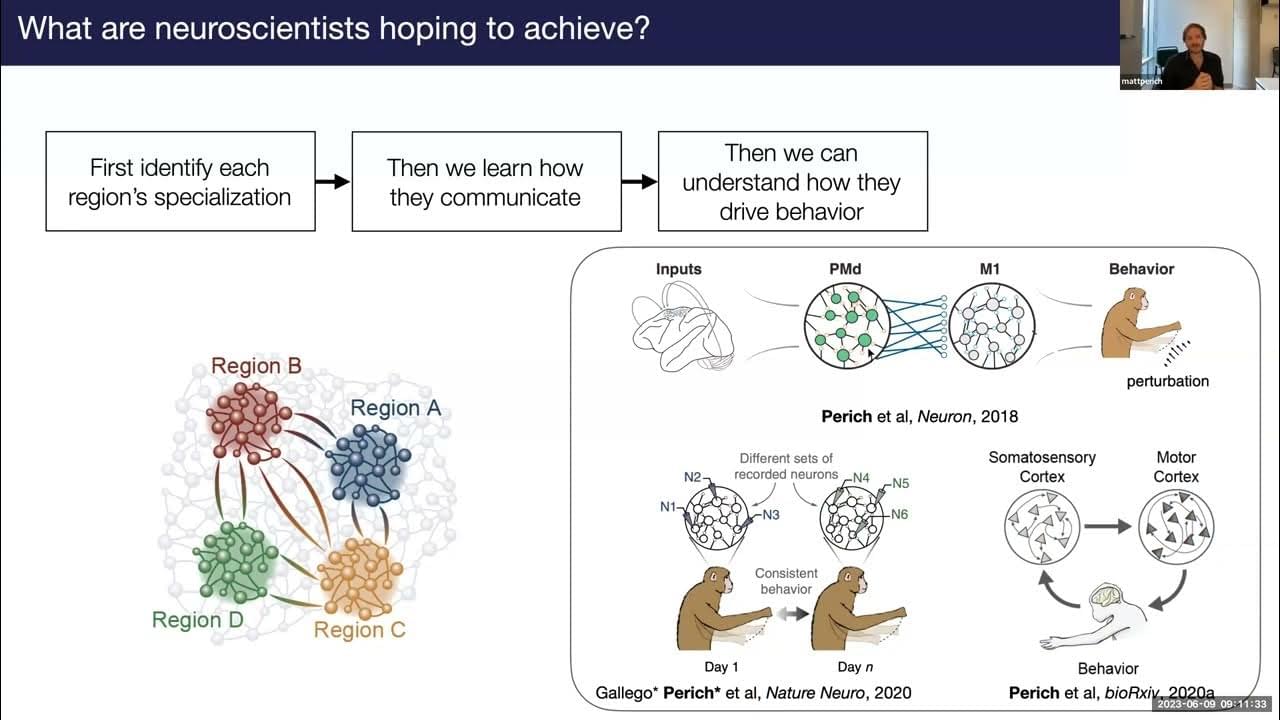
Spontaneous behavior in different individuals can be decomposed and understood using a relatively small number of neurobehavioral modules—the compositional modes—and elucidate a compositional neural basis of behavior.\
This video is part of the SNAC seminar series organized by Mac Shine, Joe Lizier, Ben Fulcher, and Eli Muller (The University of Sydney).
Dec 24, 2023
Researchers develop first high-precision dual-color optoelectronic brain probe
Posted by Zola Balazs Bekasi in categories: biotech/medical, neuroscience
A team of researchers at the University of Massachusetts Amherst has developed the first dual-color optoelectronic neural probe.
Unlike previous, single probes, which often control brain activity in only one direction—excitation or inhibition, but not both—this new design can enhance and silence the electrical activities of the same neurons within specific cortical layers of the brain. It promises aid the investigation of tightly packed neural microcircuits within the cortex and deep brain regions and, in the longer term, add to the functional mapping of the brain.
Guangyu Xu, assistant associate professor of electrical and computer engineering, an appointee of the Dev and Linda Gupta Professorship at UMass Amherst, and principal investigator of the study hopes the device can ultimately help researchers identify the origin of brain diseases.
Dec 23, 2023
Zapping injured brains can improve cognition and memory
Posted by Shubham Ghosh Roy in category: neuroscience
For the first time ever, deep brain stimulation has been shown to help people regain cognitive abilities they’d lost following a traumatic brain injury (TBI):
The lasting symptoms of a traumatic brain injury (TBI) can be treated with deep brain stimulation, according to a first-of-its kind trial.
